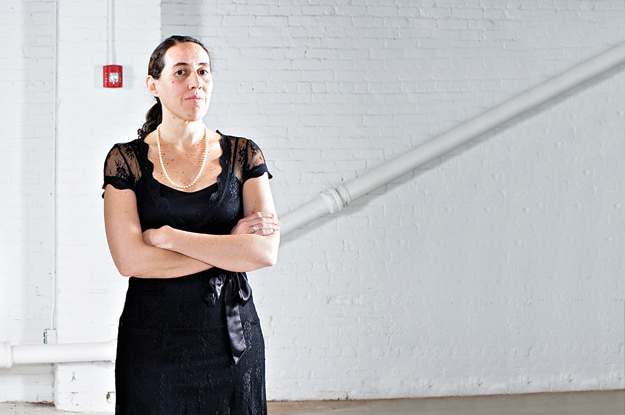See the rest of the AQ Top 5
As a child growing up in booming, prosperous 1970s Caracas, Mónica Ponce de León found inspiration for a future career in the modernist architecture springing up around her.
“Everyone felt that the buildings represented the progressive culture of the city,” Ponce de León, now 50, told AQ a few months into her tenure as dean of Princeton University’s School of Architecture. She is the first woman and Latin American to hold the position.
It isn’t difficult to see progressive energy reflected in Ponce de León’s portfolio of work, which manages to be current, inclusive and forward-thinking without being outright futuristic. Her ability to execute a simple yet ambitious philosophy — “buildings should be of their time, but timeless” — has earned her many awards and the praise of her peers. In 2007, Ponce de León became the first Hispanic to win the Cooper-Hewitt National Design Award in Architecture. This year, she co-curated the U.S. Pavilion for the 15th International Venice Architecture Biennale — one of two Americans selected for the honor by the State Department.
As both an educator and a practicing architect, Ponce de León has had perhaps the biggest impact by embracing digital technology as a way to enhance architecture in an era when some have questioned the discipline’s relevance.
“Twenty years ago, the prediction was that with all this new technology there would be no need for public space or to have comfortable homes and work- places, but it has turned out to actually be the opposite,” Ponce de León told AQ. “There’s actually more of a desire to be connected in real time and real space than ever before.”
Unafraid to borrow from other professions, Ponce de León has been a pioneer in the application of robotics technology in architecture, such as the use of KUKA robots typically used in automobile fabrication.
Ponce de León, the first member of her family to graduate from college, credits her innovation as a practicing architect in part to her time in the class- room, which she says keeps her practice “very fresh.” She has straddled both academia and private practice since earning a master’s in urban design at Harvard, staying as part of the school’s faculty for 12 years and directing a first-of-its-kind digital lab. Most recently, Ponce de León was dean of the University of Michigan’s Taubman College of Architecture and Urban Planning for almost eight years before moving to Princeton. She also founded her own practice, MPdL Studio, in 2011 after nearly two decades as founding partner at the firm Office dA.
One admiring former student said Ponce de León’s work “anticipates possibilities.” For the immigrant who came to the U.S. barely speaking English, her own possibilities have proved to be limitless.
—
O’Boyle is an editor for AQ






